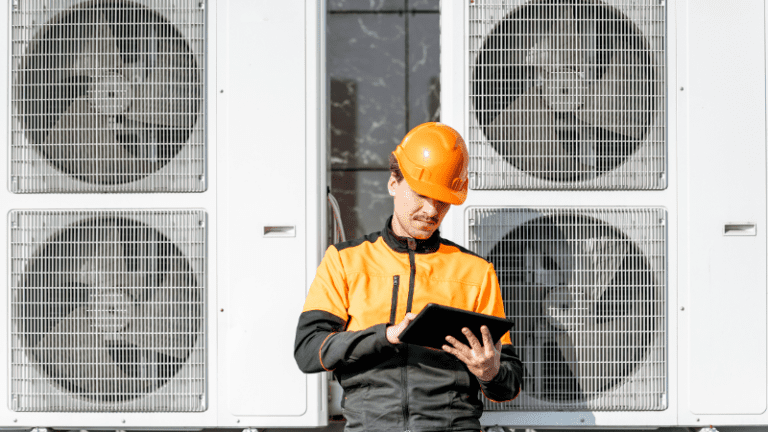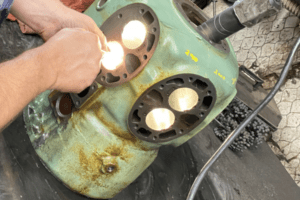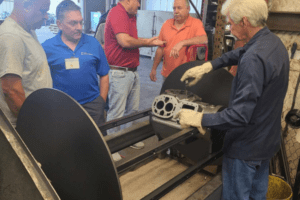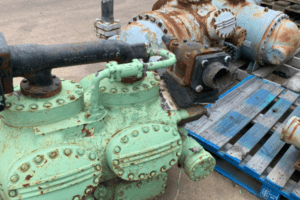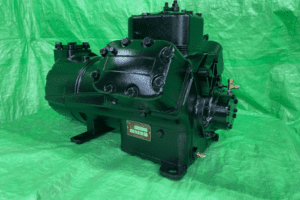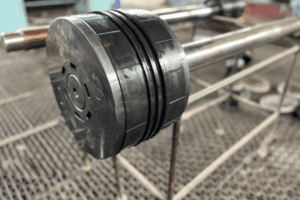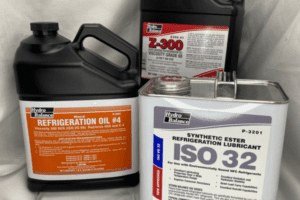A heating, ventilation, and air conditioning (HVAC) system is a must-have system for any residential, industrial, or commercial building. The system keeps the indoor environment conducive for occupants by controlling the humidity, temperature, air quality of the building.
Getting quality HVAC systems is crucial, considering that it is responsible for about 40% of the total energy consumed in commercial buildings.
If you need to replace your commercial air conditioning system, you should understand the different types of HVAC systems available.
Common Types of HVAC systems
There are three major types of commercial air conditioning systems available on the market.
- Split HVAC System
The split HVAC system gets its name from the way it’s set up as well as its components. The system comprises of the following parts:
- An indoor unit, such as an air handler
- An outdoor unit, which is the condenser
- A programmable or non-programmable thermostat
- A humidity control or filtration system
- Ductwork, which moves conditioned air from the system to the building
There are two types of split commercial air conditioners:
- Single-split
- Multi-split
Single-Split System
The single-split is an affordable commercial air conditioning system that is suitable for small spaces such as cafes, server rooms, shops, and offices. The compact system is easy to install, and this is why it’s preferred for new buildings or renovated commercial spaces.
Advantages
- Cheaper to install and, therefore, ideal for small commercial spaces
- Each of the units is self-contained. Therefore, if one breaks down, the others will still be working.
- Energy-efficient. Each indoor unit can be used to deliver air conditioning only to the room that needs it.
- The best solution for a single room that requires an additional HVAC system
Disadvantages
- It occupies a lot of space as it has an outdoor unit for each internal unit
Multi-Split System
With multi-split systems, you can connect several indoor units to one external unit. These systems are usually installed in larger spaces such as retail shops, doctors’ units, and restaurants.
A multi-split system has a lot of pipework and needs to be properly installed. Get a professional to do the job as installation mistakes can reduce your HVAC efficiency by 30%.
Advantages
- Takes up less space. One outdoor unit can be used with several indoor units.
- It preserves the external appearance of your building
- The installation doesn’t require your building to have ductwork
Disadvantages
- The installation cost is higher
- The installation can take longer as there is more pipework to be done
- VRV or VRF System
The Variable Refrigerant Volume (VRV) or Variable Refrigerant Flow (VRF) system uses a refrigerant as its heating and cooling element. This is the best system for use in medium or large commercial spaces since it has a single condenser that can be used for more than one evaporator.
Each of the system’s internal units uses Electronic Expansion Valve (EEV) to control the refrigerant supply, ensuring it is in line with the demand from the building space.
There are two types of VRV system:
- Heat pump systems, which are used for either cooling or heat pumping. These are large multi-splits units that are more efficient for open spaces.
- Heat recovery systems, which can cool and heat buildings simultaneously. The systems save energy and are ideal for use in commercial spaces comprising of several rooms.
Advantages
- Ideal for medium and large commercial spaces
- Easy to install in buildings under expansion
- Quick installation without inconveniencing occupants of the building
Disadvantages
- Expensive to install
- If the unit breaks down, the whole HVAC system will be affected
- CAV and VAV Systems
A Constant Air Volume (CAV) and a Variable Air Volume (VAV) system are two different HVAC systems that function nearly the same way.
CAV System
The CAV system uses a compressor, such as Danfoss or Copeland, that operates at full capacity until the temperature required in the building is achieved.
The system is ideal for commercial spaces where temperatures remain constant for a long time, for example, manufacturing and warehouse facilities.
Advantages
- Suitable for spaces that have constant ventilation requirements
Disadvantages
- Produces fixed air volume, which results in high energy costs in spaces that don’t require the highest airflow
- Are poor at controlling humidity
VAV System
The Variable Air Volume system is suitable for spaces with varying heating and cooling needs. The system compressor or fan speed varies depending on the temperature of the room. The compressor also regulates the refrigerant flow to maintain consistent temperatures. This makes the system energy-efficient.
Advantages
- Saves energy costs
- Suitable for buildings with variable ventilation loads
- Superior control of humidity and temperature
Disadvantages
- Expensive to set up
- The system takes up a lot of space since a fan room must be located in the building
The ideal HVAC system for your building will depend on the air conditioning needs. The right commercial air conditioner will provide value for your money
Compressors Unlimited offers quality commercial remanufactured HVAC compressors from top brands, including Bitzer, Carrier, Copeland, Danfoss, Hitachi, Trane, and York. Get a quote today!

